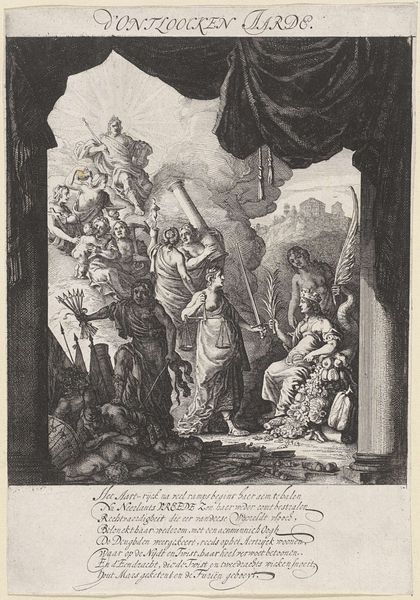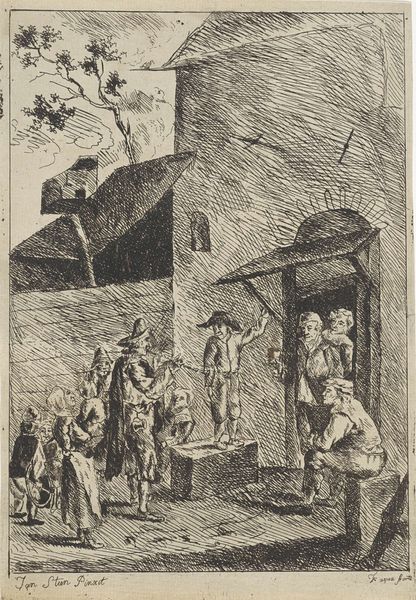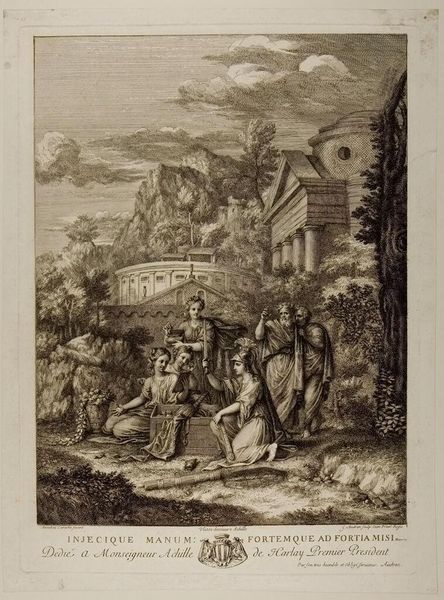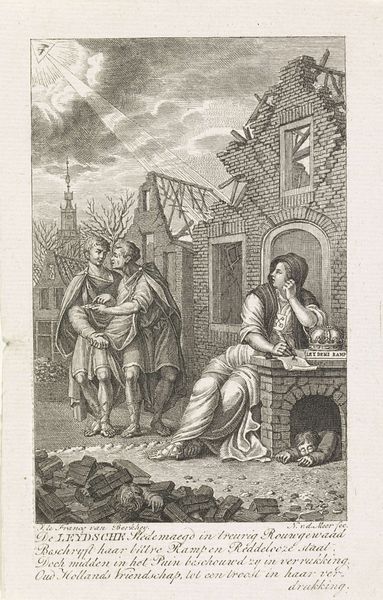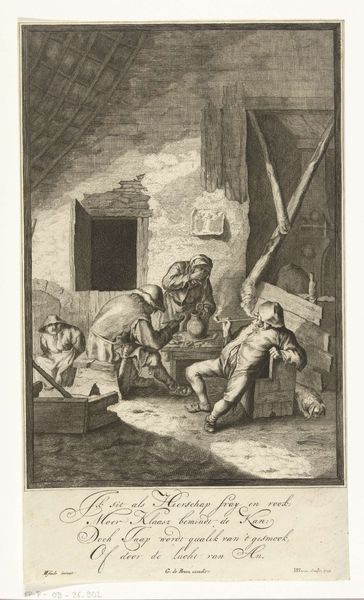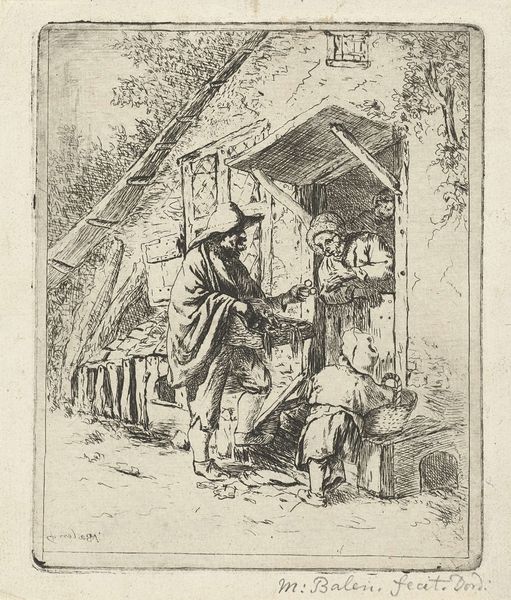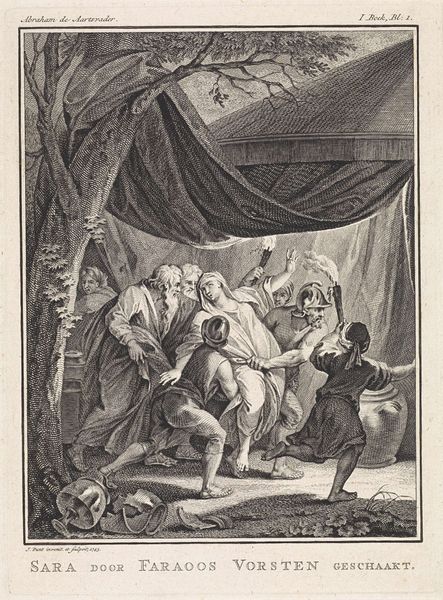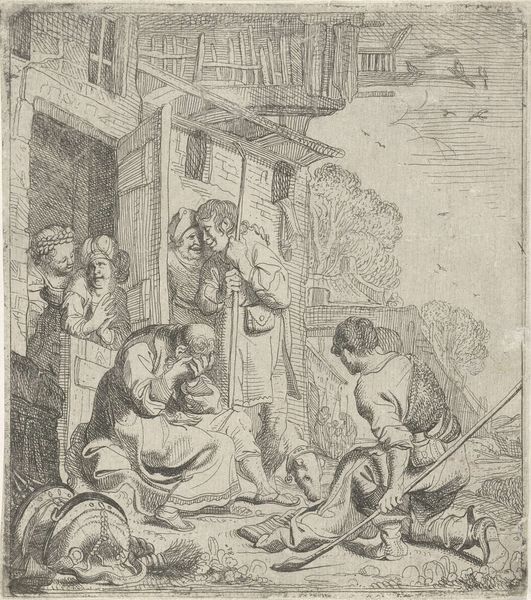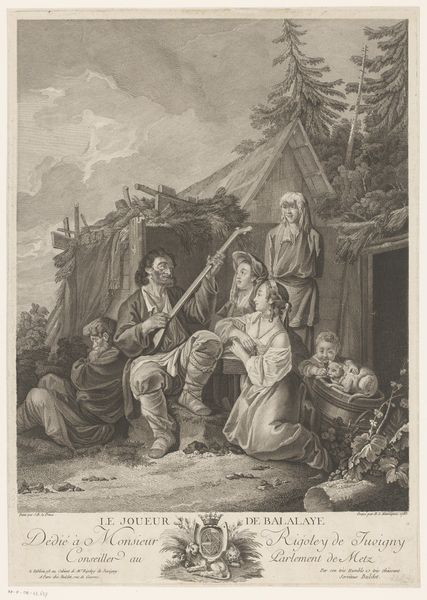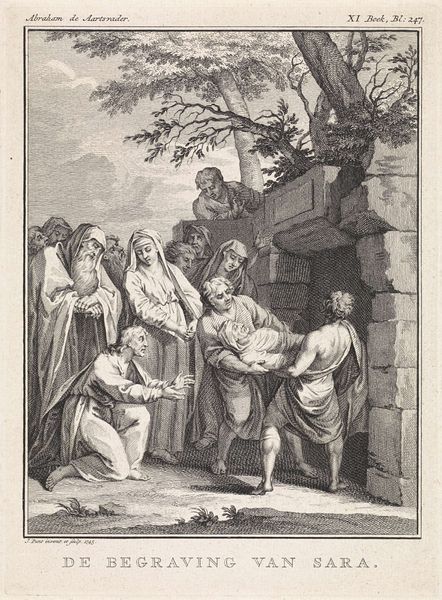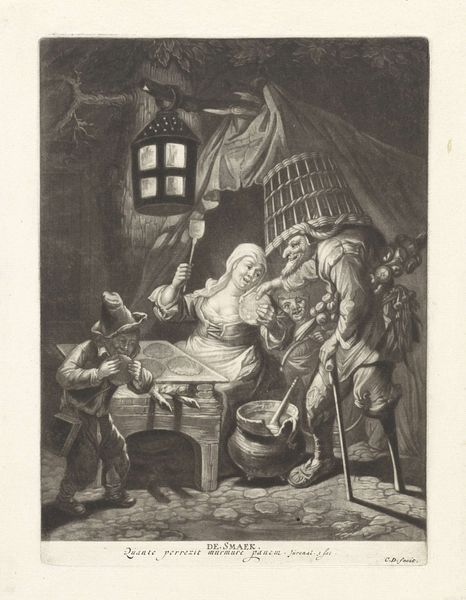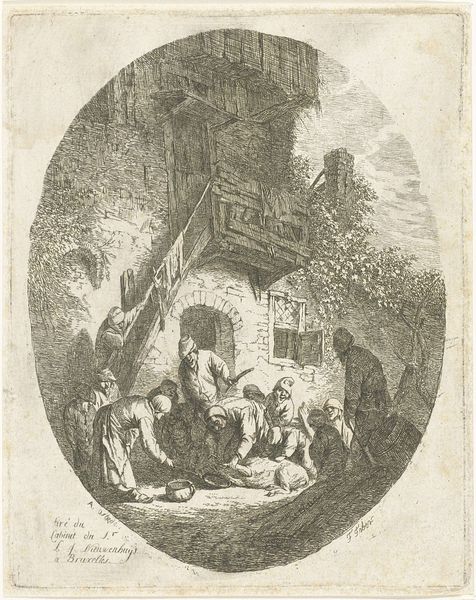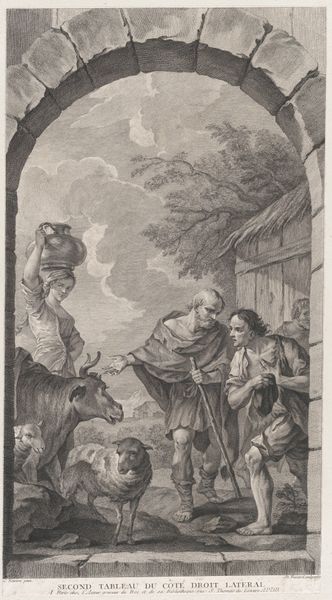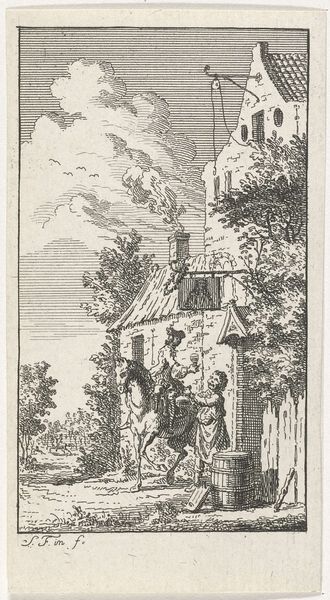
Dimensions: height 153 mm, width 96 mm
Copyright: Rijks Museum: Open Domain
This print, “Huis van Erastus met zijn kinderen, vrouw en oude bediende,” was made by Izaak Jansz. de Wit in the 18th century, using the technique of etching. The material that defines this print isn’t ink or paper, but rather the metal plate from which it was made. The artist would have painstakingly covered the plate with a waxy ground, then used a sharp needle to scratch away the areas that would hold ink. This process, requiring considerable skill, allowed for the creation of fine, detailed lines. When the plate was dipped in acid, these lines would be bitten into the metal, creating grooves. Ink would then be applied, and the plate pressed onto paper, transferring the image. The texture and depth of the lines give the print its distinctive character, a result of the artist's manipulation of the metal. Ultimately, understanding etching provides insight into the labor-intensive process behind this image, bridging the gap between craft and fine art.
Comments
No comments
Be the first to comment and join the conversation on the ultimate creative platform.
